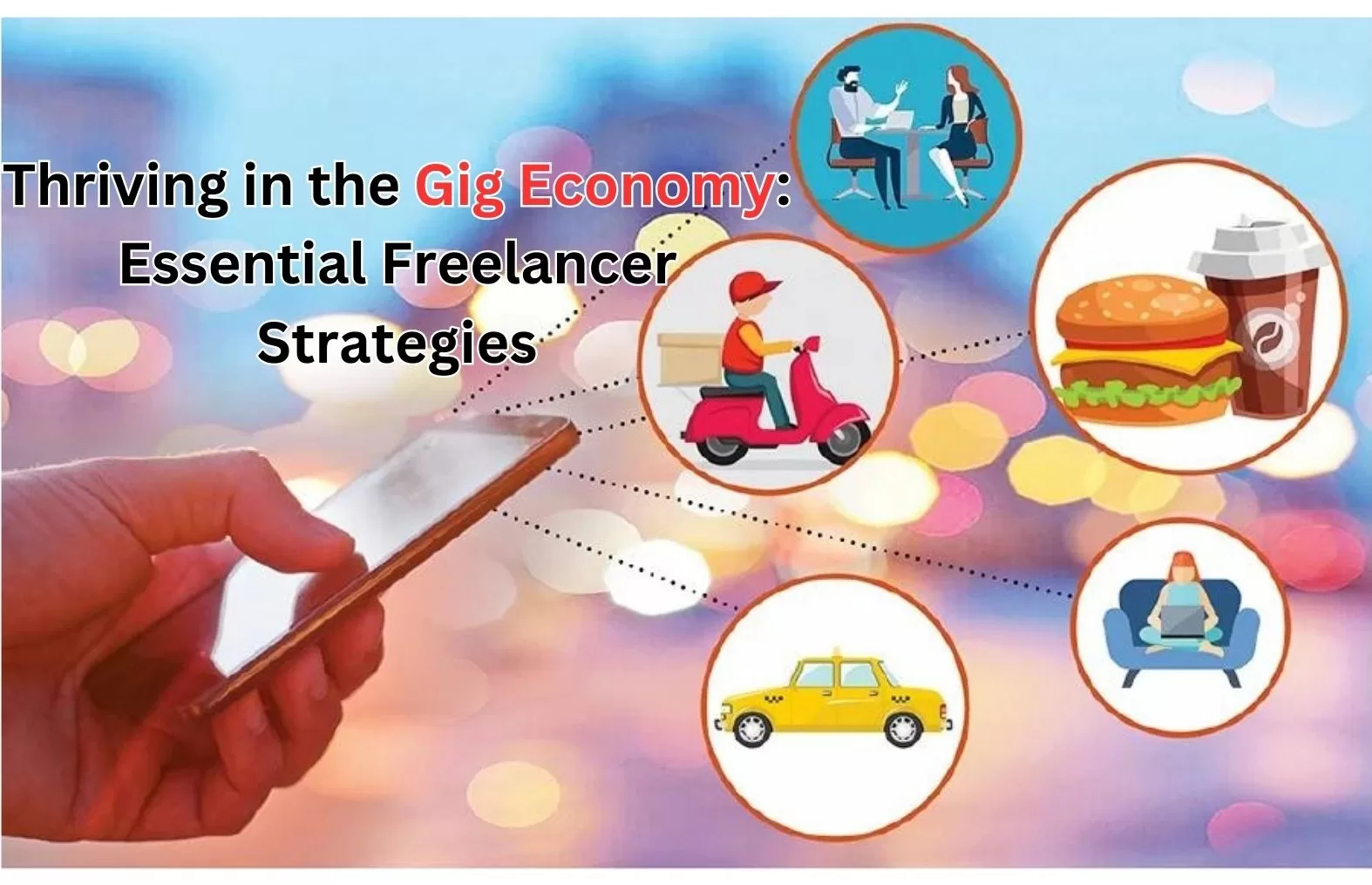Introduction
In today’s rapidly evolving job market, the gig economy has emerged as a prominent force, offering freelancers unprecedented opportunities to showcase their skills and talents. As the traditional 9-to-5 model gives way to more flexible and dynamic work arrangements, freelancing has become a viable career choice for millions worldwide. However, succeeding in the gig economy requires more than just technical expertise; it demands a strategic approach and a keen understanding of how to navigate its unique challenges and opportunities.
Understanding the Gig Economy:
The gig economy encompasses a wide range of independent work arrangements, from freelance writing and graphic design to ride-sharing and online tutoring. According to recent statistics, the number of freelancers and independent workers continues to rise, fueled by factors such as technological advancements, changing attitudes toward work, and the pursuit of greater autonomy and flexibility. While the gig economy offers numerous benefits, including flexibility, autonomy, and the opportunity to pursue diverse projects, it also presents challenges such as income instability, lack of benefits, and intense competition.
Essential Strategies for Freelancers:
Building a Strong Online Presence
Building a Strong Online Presence is crucial for freelancers looking to stand out in a crowded marketplace. This involves creating a professional website or portfolio that showcases your skills, expertise, and past projects. Additionally, leveraging social media platforms such as LinkedIn, Twitter, and Instagram can help you connect with potential clients and collaborators, expand your network, and promote your services effectively. Online freelancing platforms like Upwork, Fiverr, and Freelancer can also serve as valuable resources for finding new clients and projects.
Networking and Relationship Building
Networking and Relationship Building are essential components of success in the gig economy. Building meaningful connections with potential clients, collaborators, and peers can open doors to new opportunities and collaborations. Whether attending industry events, joining professional associations, or participating in online communities and forums, networking allows freelancers to expand their reach, exchange valuable insights, and establish long-lasting relationships that can lead to future projects and referrals.
Diversifying Income Streams
Diversifying Income Streams is another key strategy for freelancers seeking to mitigate risk and ensure financial stability. Instead of relying solely on one source of income, consider offering a variety of services or products within your skill set. This could involve diversifying your client base, exploring different niches or industries, or even creating passive income streams such as digital products, online courses, or affiliate marketing. By diversifying your income streams, you can reduce your dependence on any single client or project and weather economic downturns more effectively.
Time Management and Organization
Time Management and Organization are critical skills for freelancers juggling multiple projects and deadlines. With the freedom to set your own schedule comes the responsibility to manage your time efficiently and prioritize tasks effectively. Utilizing tools and apps for task management, scheduling, and project tracking can help you stay organized and focused, while setting boundaries and establishing a healthy work-life balance is essential for preventing burnout and maintaining long-term productivity.
Continuous Learning and Skill Development
Continuous Learning and Skill Development are essential for staying competitive in the ever-changing landscape of the gig economy. Recognizing that skills can quickly become outdated in today’s fast-paced world, freelancers must invest in ongoing education and professional development to remain relevant and marketable. Whether through online courses, workshops, conferences, or self-directed learning, committing to continuous learning allows freelancers to stay ahead of the curve, expand their skill set, and capitalize on emerging opportunities.
Summing Up
Navigating the gig economy as a freelancer requires a combination of strategic thinking, adaptability, and resilience. By building a strong online presence, networking effectively, diversifying income streams, managing time efficiently, and investing in continuous learning, freelancers can position themselves for success in a competitive and rapidly evolving landscape. While the gig economy presents its share of challenges, it also offers unparalleled opportunities for those willing to embrace its dynamic nature and pursue their passion on their own terms. As freelancers continue to shape the future of work, embracing these essential strategies can help them thrive in an increasingly interconnected and digital world.




